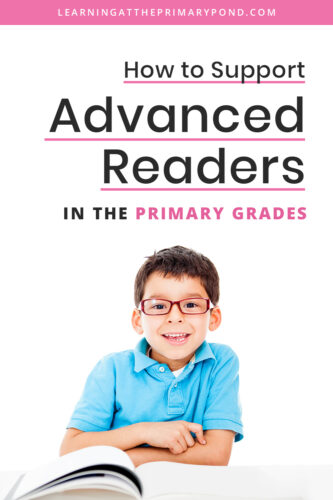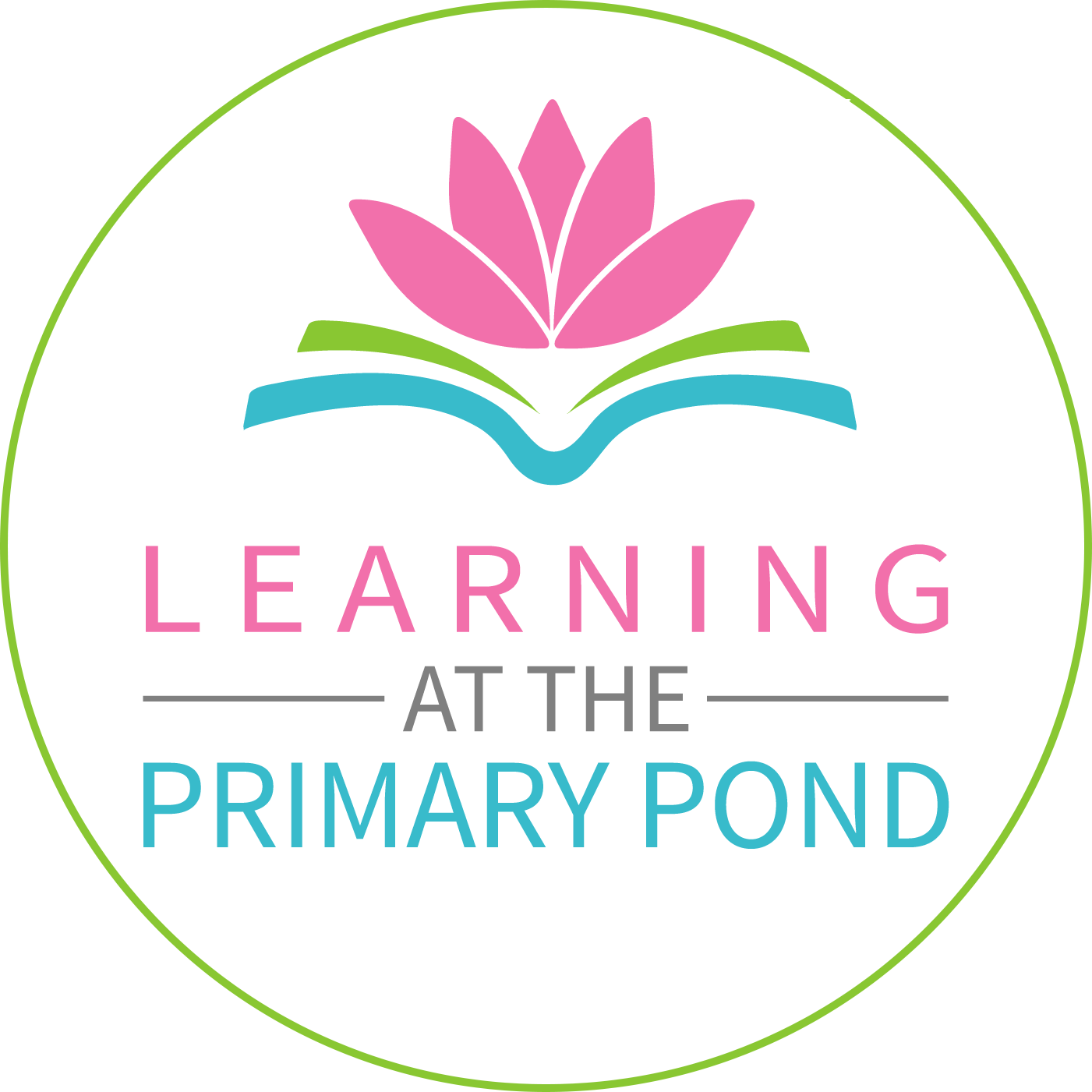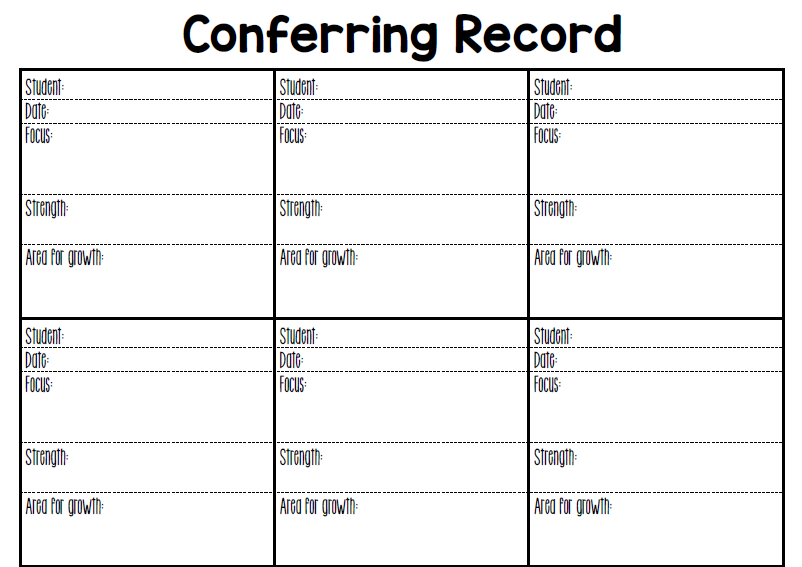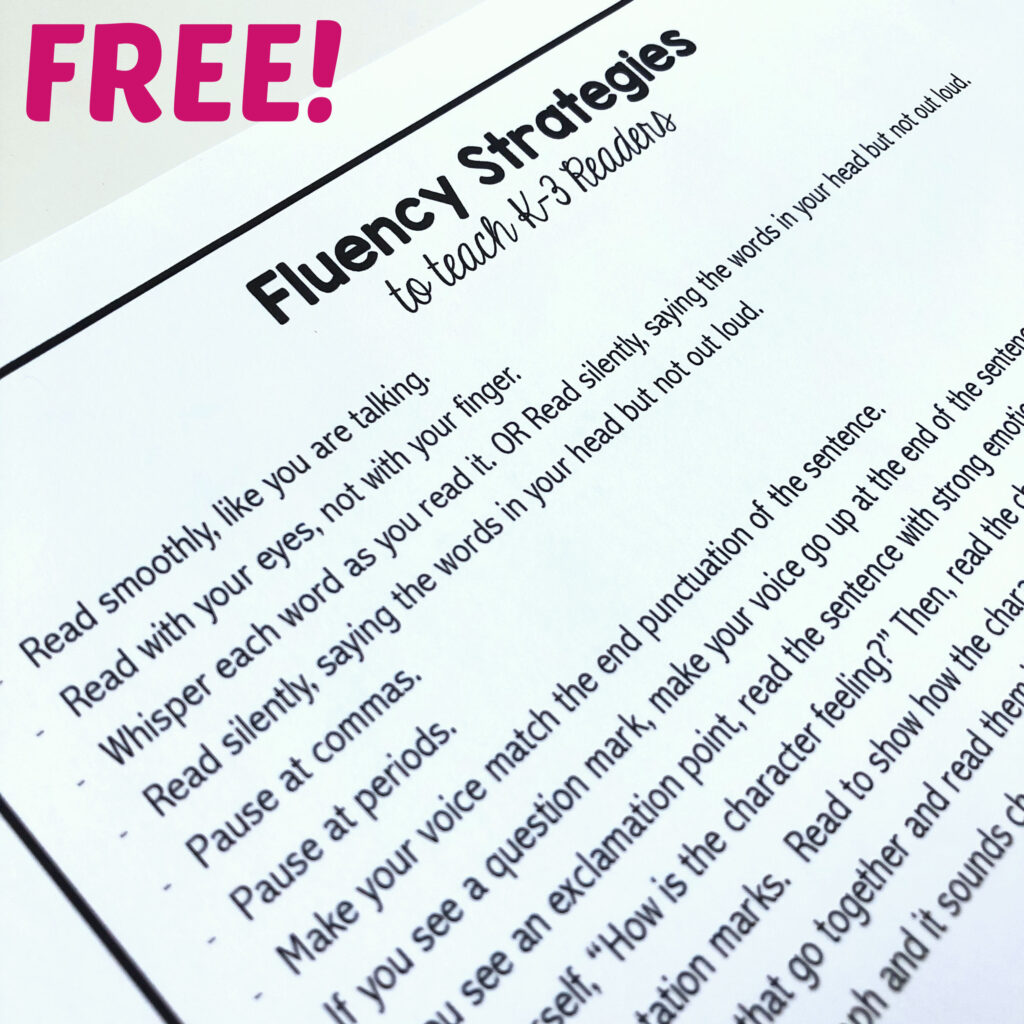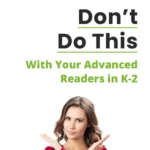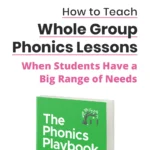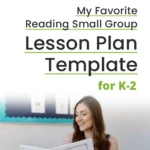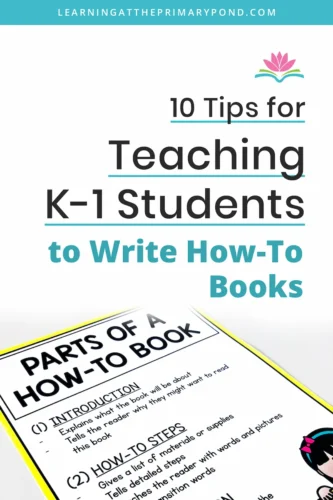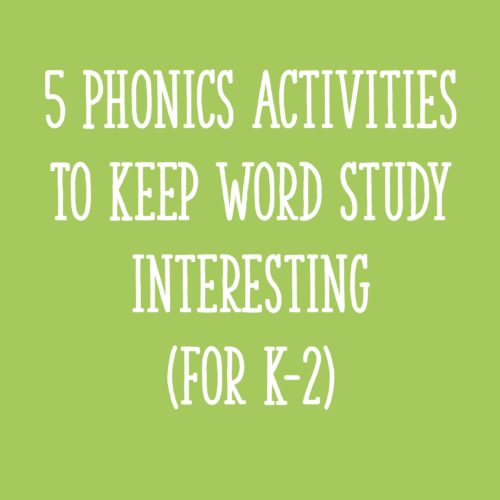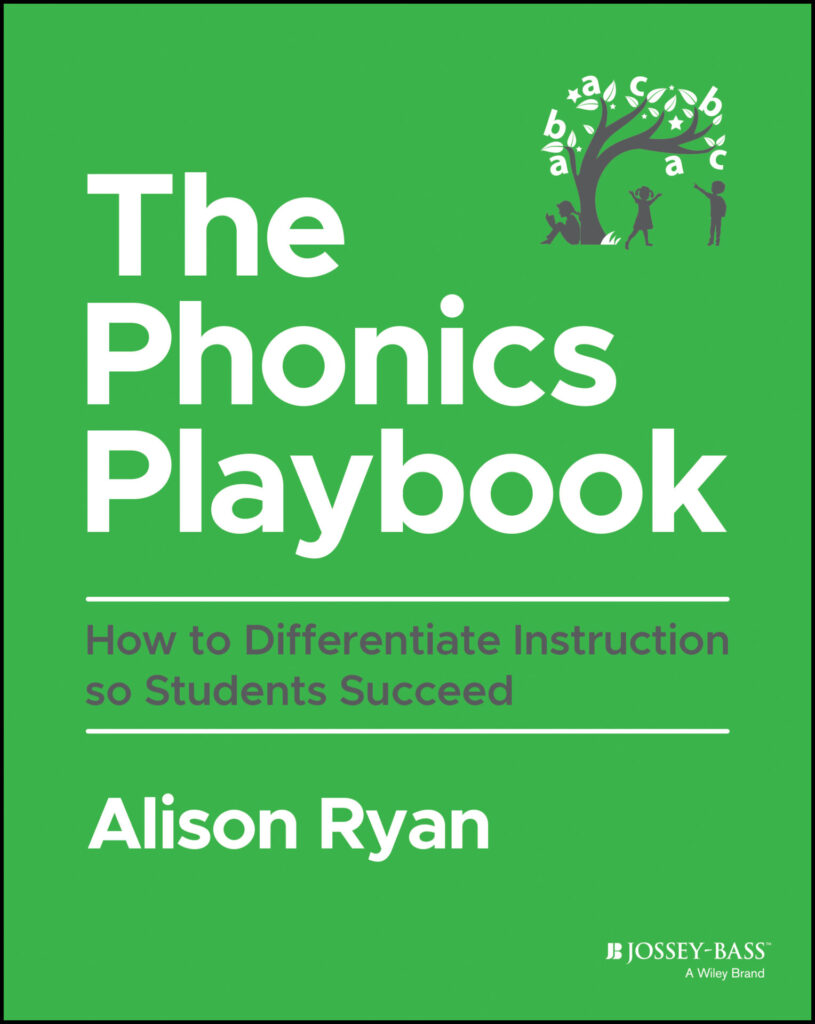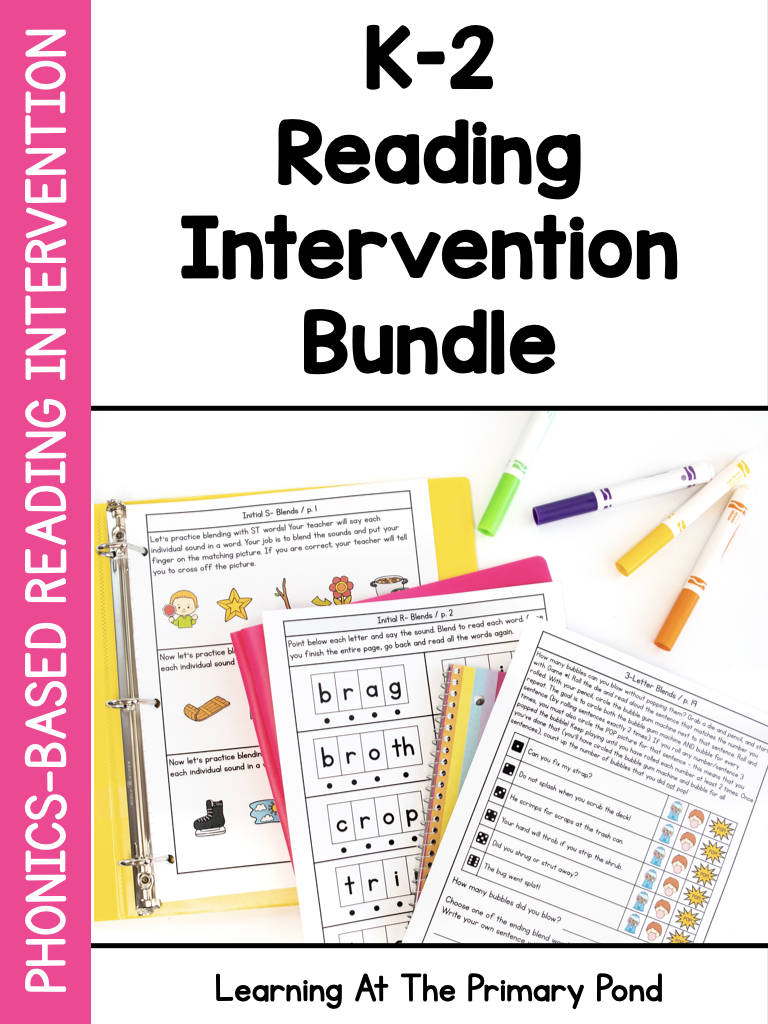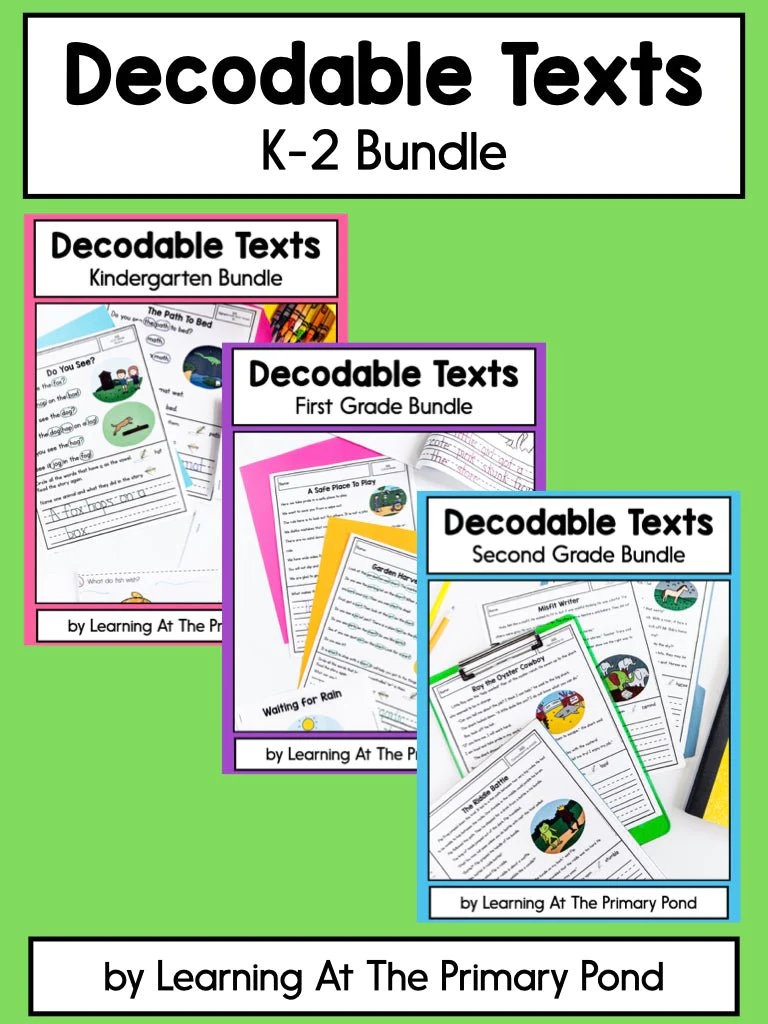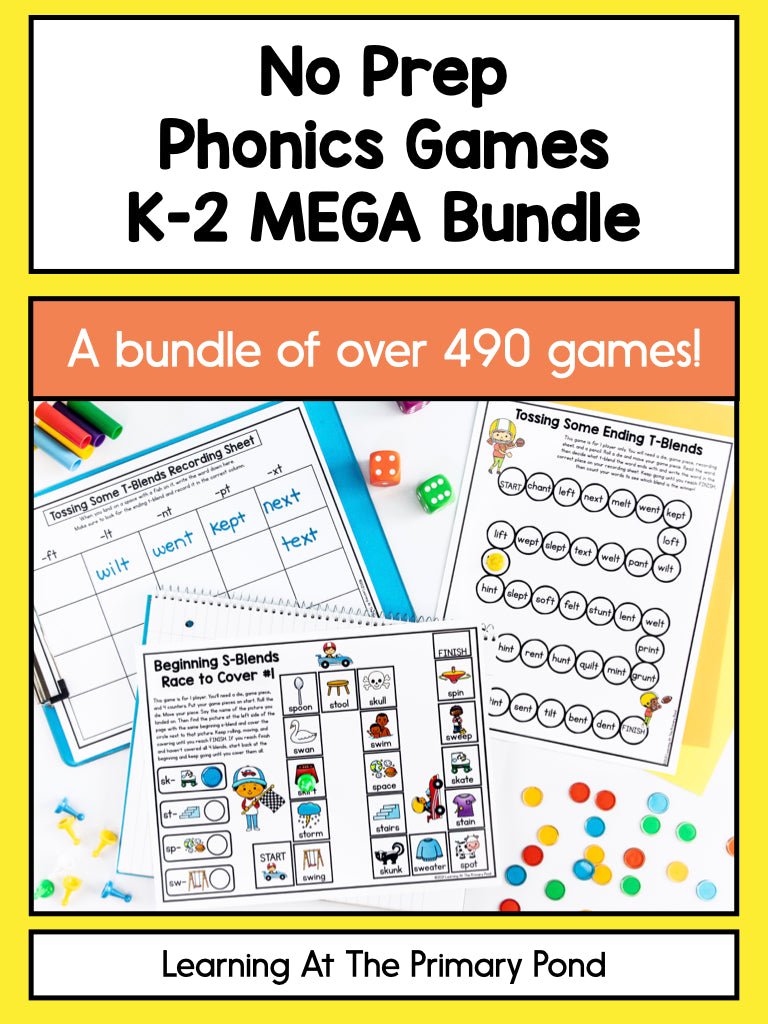As educators, we talk quite a bit about how to support struggling readers. Rightfully so, but on the flip side – we also have advanced readers who are working on texts well above grade level.
Students who read a grade level or two above are often left to their own devices. It’s easy to think that they don’t need our help as much as our below-level and on-level readers.
And while they might not need the same level of support as their peers, they still need (and deserve!) our guidance to build skills and continue growing as readers.
In this blog post, I’ll share practical tips for working with students who are reading above grade level.
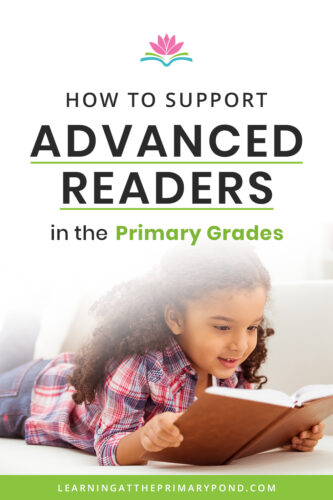
Pinpoint hidden areas of weakness
Have you ever worked with a reader who knows LOTS of words but struggles when they come to a new multisyllabic word?
Some students have strong visual memory skills and know a large quantity of high frequency words – but they may lack decoding strategies or phonics knowledge.
As these students begin to read more challenging texts (with tricky proper nouns and multisyllabic words), students need to use “word attack” skills to break down these new words and decode them correctly.
A nonsense word inventory is a quick, easy way to see if a student is able to use decoding strategies and phonics knowledge to read new words. (Since the words are nonsense words, students wouldn’t have encountered them before, so you know for sure that they haven’t memorized the words and are truly using their decoding abilities.)
If you’re a member of my First & Second Grade Literacy Club, you have access to a nonsense word inventory that looks like this:

This is not the whole assessment – parts are cut off. It progresses from easier to more difficult words. If you’re a First and Second Grade Literacy Club member, look inside “Intervention Central” to find this page as part of the Phonics Protocol PDF.
Of course, phonics is not the only possible area of weakness for your advanced readers! They may also struggle with:
- Self-monitoring (noticing when their comprehension has broken down and using strategies to get back on track)
- Inferring the meanings of vocabulary words through context (some of my advanced readers tend to just skim right over new words and not think about their meanings)
- Inferential thinking (moving beyond basic comprehension of a text)
Advanced readers have needs, too! And sometimes their needs might surprise you.
Differentiate materials
Differentiation is valuable for all students, right? We can:
- Allow choice
- Use technology (Websites like EPIC) to expand the number of books available to students
- Provide a variety of genres during instruction and in your library (fiction, non-fiction, fantasy, biographies, graphic novels, etc.)
- Try having students use a free digital tool like Read Theory – it automatically adjusts to students’ levels
You can help your advanced readers find more complex, challenging materials that may include sophisticated vocabulary and concepts. We don’t want to give these students MORE work – we want to give them DIFFERENT (more appropriate) work.
When you’re looking for more complex texts, consider your student’s emotional maturity as well. Are they ready for the content and themes introduced in that text? Click here to read an interesting blog post (not mine) about choosing age-appropriate books for advanced readers.
Provide coaching and support
Now let’s talk about supporting advanced readers in small group! If decoding is not an issue for some of your students, it may seem like they don’t need your support. But they do – just a different kind of support.
During small groups, you can coach advanced readers on critical reading skills (i.e. analyzing, inferring, comprehension) and ask questions that require higher-level thinking.
Sometimes you might have a handful of advanced readers – but they’re not all reading at the same level. You can still meet with them in a small group setting at times, so that they get the experience of a group discussion (Just choose a text that’s accessible to all students in that group, even if it’s not precisely at their level.)
You can provide even more individualized support by doing 1:1 reading conferences. During a conference, you and the student can set individual goals to keep them moving forward.
You can track their goals and progress with a conferring record like this one:
Here are a few ideas for goals for your advanced readers:
- Keep a list of unfamiliar words while you read
- Track a character’s journey (physical or emotional)
- Draw comparisons to other books or your own life
- Use stickies to tag parts that are: favorites, funny, sad, important, or even surprising
Create opportunities for productive work with peers
If you’re lucky, you’ll have a nice even number of advanced readers in your class. So, they can partner up or work in a group.
For example, after independent reading time, your students might partner up and discuss their favorite part of a text they were reading. Or they might retell or discuss a specific strategy they used. (If you use my Flexible Shared Reading Lesson Plans, you’ll have plenty of ideas for structuring partner talk.)
Advanced students benefit from partner reading as well. They can take turns reading paragraphs to each other (and ideally, discussing ideas as they read).
Book clubs are another great option! Students can choose a topic and read different copies of the same text. You can help them structure their conversations using a strategy like reciprocal teaching.
Conclusion
When you have a whole class full of students to support, it’s easy to let your advanced students slip through the cracks. But they need you, too! Just in different ways.
How do you support advanced readers in your classroom? I’d love to hear your insight in the comments!
Last but not least, if a list of comprehension and fluency strategies (plus decoding strategies and other goodies) would be helpful to you in supporting your advanced readers, you can grab one in my free guided reading toolkit.
Happy teaching!
